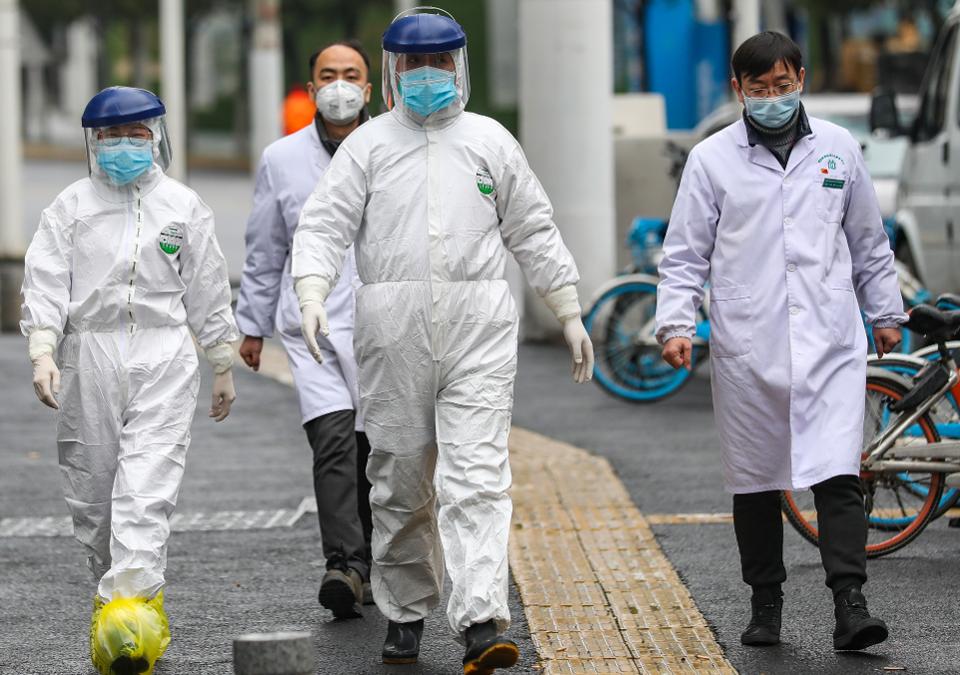January, 29, 2020

Forbes - The coronavirus continues to spread within China and throughout other parts of the world. Recent reports claim that about 106 people have died due to the virus and over 4,500 cases have been confirmed.
To stem the virus from continuing to infect others, China has quarantined or placed on lockdown several of its largest cities, affecting roughly 60 million people.
More than 70 cases have been confirmed outside of China in about 17 countries, including the United States. The U.S. Centers for Disease Control and Prevention (CDC) issued an alert warning that there is the highest level of risk related to China at this time.
The visuals coming from Wuhan—the epicenter of the virus—and other cities are somewhat terrifying. There are pictures and videos of empty cities, due to the lockdowns, that make them look like a surreal dystopia. These images are juxtaposed with pictures showing hordes of people trying to obtain healthcare in overcrowded hospitals attended by medical professionals garbed in hazmat suits.
Large corporations, CEOs and executives have been the target of scorn lately in the U.S. due, in part, to the politics involved with the presidential race and concerns over the growing economic and income inequality. They’re portrayed as earning too much money and benefiting at the expense of their workers and customers.
Acknowledging the potential threats to the safety and well-being of their employees, major global corporations have taken applaudable and appropriate actions. A large number of companies have already announced that they're shutting down their respective operations until further notice. Workers are being told to work from home and not come into the office. Travel to China is being banned by many companies.
This is a smart and compassionate move on the part of management of these companies. While revenue and profits are important, lives take precedence and are sacrosanct. While the risks are still unknown—as it could become an even greater health issue or hopefully soon subsides—it's prudent and compassionate to ensure that employees are kept safe and out of harm's way.
Investment banks, such as Morgan Stanley, Credit Suisse and UBS with operations in China and adjacent counties, are telling staff to stay at home and put off any non-essential travel to the region. As a precaution, employees returning from mainland China are forced—for the health and safety of the other employees—to work from home for two weeks and can only return to the office once it's proven that they’re symptom-free.
Facebook is banned in China; however, the social media company maintains offices in the country. Facebook is halting all non-essential employee travel to China and is telling employees who have recently returned from China not to come into the office and work from home.
Major airlines are canceling flights to help stop the spread of the virus and ensure the safety of their pilots, flight attendants and others. McDonald’s, Ikea, Disney, KFC, Pizza Hut, General Motors, Ford, WeWork and an array of other companies have announced that they are temporarily discontinuing operations or restricting their staff from traveling to the region.
It is helpful that this is a time when businesses traditionally close and people spend time with family and friends for the Lunar New Year.
Work stoppages and company closures will certainly hurt the bottom line for these organizations. Nevertheless, these steps seem reasonable and rational—in light of the little that is known about the virus. Caution and concern seem to be watchwords for the companies. It appears that most, if not all, companies are looking after the interests of their people.
It is not all doom and gloom. Dr. Young Ahn, an American who now lives with his family in China and serves as the deputy chief medical officer and chief of anesthesiology and critical care for a hospital in Shanghai, offers a positive outlook. Ahn contends that medical professionals will soon gain an understanding of the virus and take swift actions that will slow it down or stop it altogether.
He recognizes that the coronavirus is strong, but points out that China has firsthand experience with dealing with these types of health issues. While the numbers of people affected seem alarming, he puts it all into perspective. Ahn points to data from the CDC, which states, “Influenza has resulted in between 9 million to 45 million illnesses, between 140,000 to 810,000 hospitalizations and between 12,000 to 61,000 deaths annually since 2010.” Those numbers look staggering, but when you account for 350 million people living in the U.S., it is not as bad as it sounds.
The numbers currently quoted for the deaths and illness related to the coronavirus, while they seem large, pale in comparison to China’s overall population and, according to Ahn, are in line with other strains of viruses that have not had this type of attention. He is concerned that the hysteria—being whipped up by the media—is pushing people to rush to the hospital in fear that they may have the virus. Meanwhile, Ahn worries that those who have other serious medical issues may be overlooked.
Confirming Ahn’s thesis, the World Health Organization (WHO) has not classified the virus as an "international emergency." The low rate of global cases is said to be the reason for not yet officially classifying it as an international crisis. However, WHO director-general Tedros Adhanom Ghebreyesus said, "Make no mistake, this is, though, an emergency in China."
If both Ahn and Ghebreyesus are right in not deeming the coronavirus outbreak as an international epidemic, hopefully, that means that within a reasonable amount of time, things will get back to normal. Companies will resume operations, employees will return to work and international commerce will continue. The stock market rallied 200 points on Tuesday after a large downturn on Monday, which illustrates that investors are also confident that—while scary—the coronavirus can be controlled.
Video Story